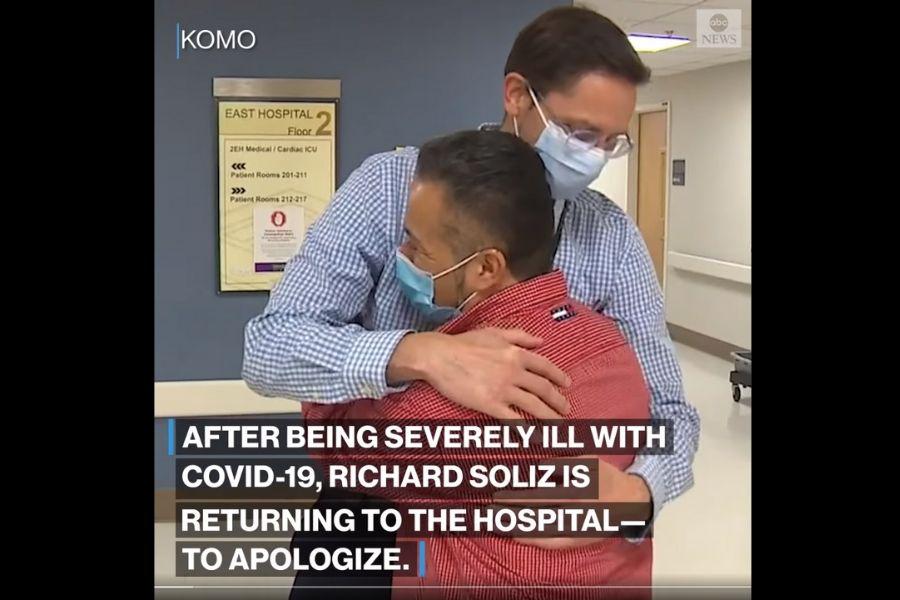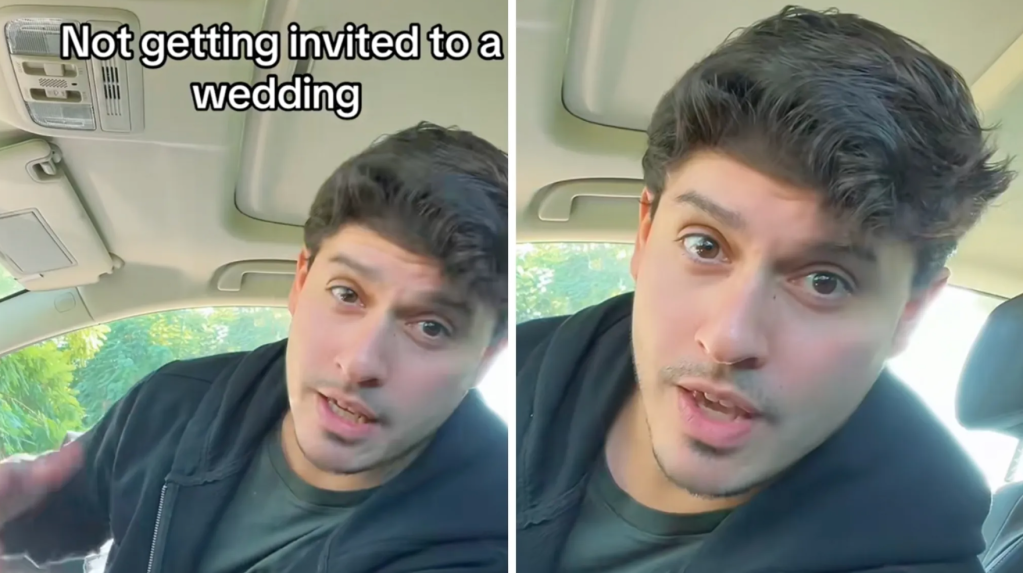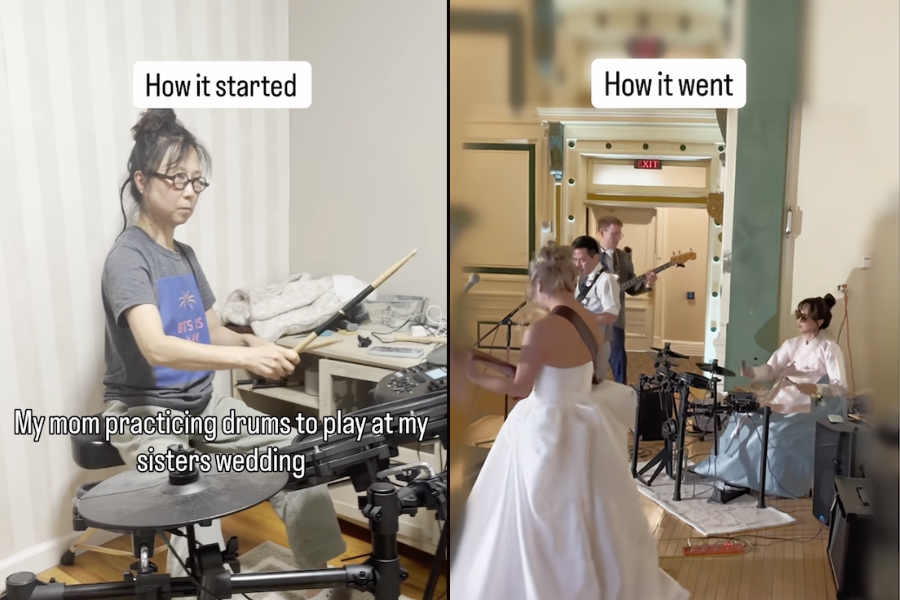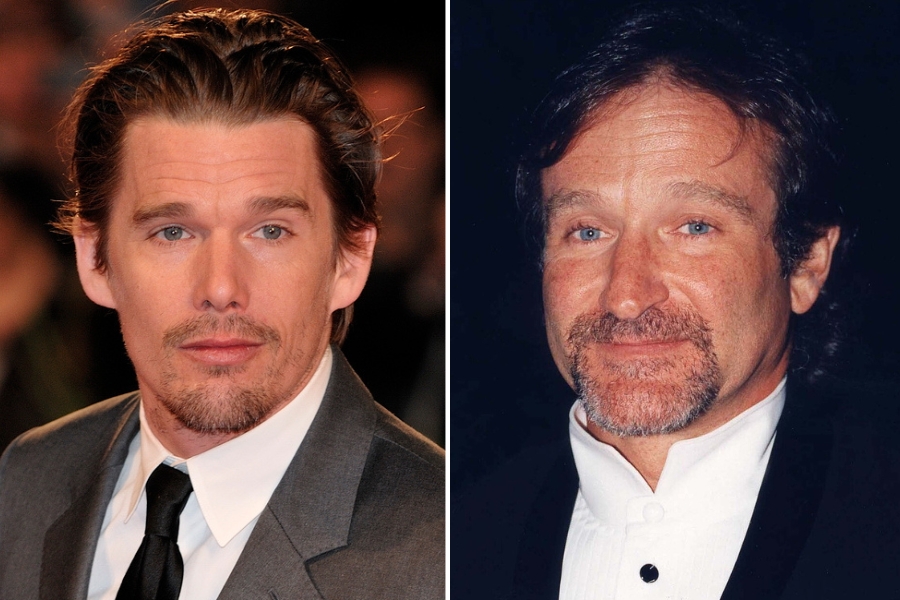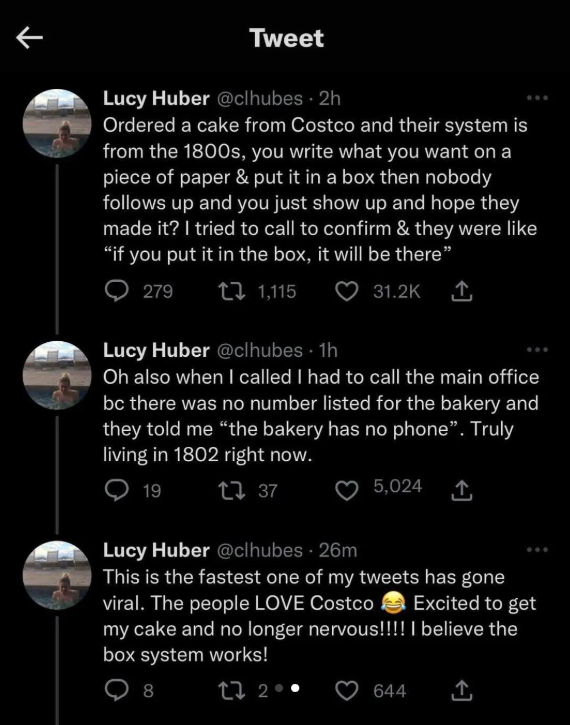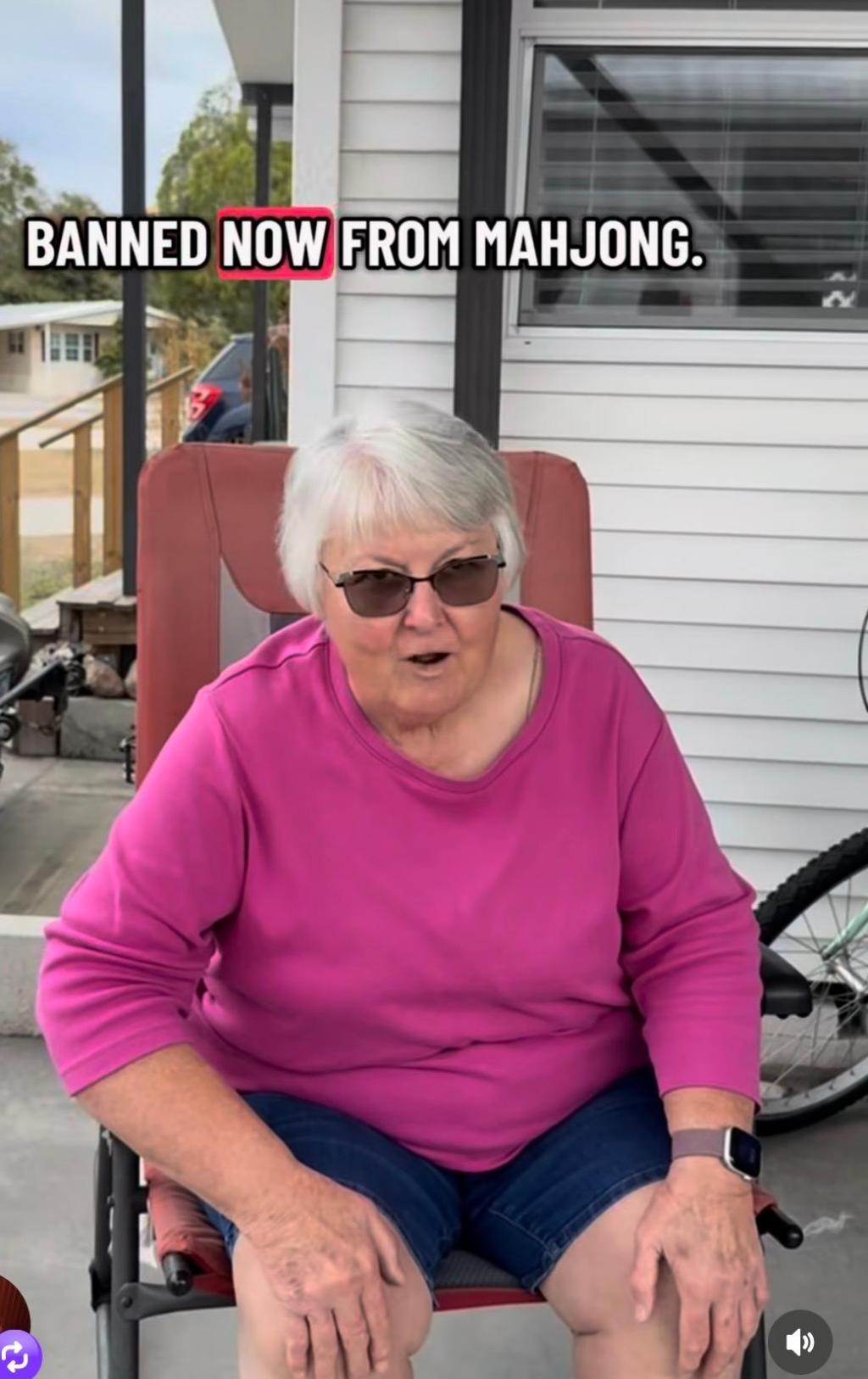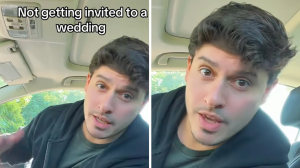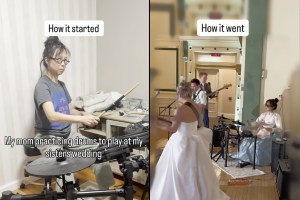Throughout the pandemic, we’ve seen countless stories of patients in the ICU, terribly sick with COVID-19, still insisting that the virus isn’t real. Such stories of denial are frustrating, especially for healthcare workers who are doing their best to save people’s lives.
That’s why this story of a COVID patient returning to the hospital to thank—and apologize to—the medical staff who helped him offers a ray of hope that not all who are in denial will stay that way.
According to KOMO News, Richard Soliz hadn’t known anyone who had gotten sick from the coronavirus. He had also fallen prey to misinformation on social media about the vaccine, so had chosen not to get vaccinated. Then he fell ill in late August, spiked a fever and found it difficult to breathe.
“That’s when I really knew I was in a bad situation,” Soliz said. “That’s when I knew, hey, this is COVID. Man. I contracted the virus.”
Soliz told KOMO he was embarrassed when staff at Seattle’s Harborview Medical Center asked him if he was vaccinated. Pulmonologist and director of the ICU Dr. James Town told CNN that when Soliz was admitted, about 99 out of 100 COVID-19 patients at Harborview had not been vaccinated
Soliz ended up spending 28 days in the hospital. He was put on a ventilator and a heart monitor in the ICU and nearly didn’t make it.
“I am certain that there is truth to this virus, and not being vaccinated leaves you vulnerable to the extent of possibly really taking a person’s life,” Soliz said. “I personally know that, because I was not vaccinated. I did not act, I wasn’t certain, and I nearly lost my life.”
Soliz did make it, though. Then he did something that few unvaccinated COVID-19 survivors do. He went back to the hospital to thank the medical team that treated him—and apologize for not getting vaccinated.
“I was literally on my deathbed and hanging from a string, and [doctors and nurses] tended to me as perfect strangers,” Soliz told CNN. “I just had to say something.”
Soliz thanked Dr. Town and told him he deeply regretted not getting the vaccine.
“No one blames you or judges you,” Town responded. “Everyone is just happy that you are willing to share the story, I think. And happy that you’re better.”
Healthcare workers are heroes. Seriously.
“It’s emotional for us to see someone do well,” Town told KOMO News. “Particularly when things are so dark.”
Other staff members were moved by Soliz’s apology and gratitude.
“We do put so much of our own heart into the care and worry,” nurse Kimmy Siebens said. “We never really get to see people get that much better. And so it’s amazing. It makes it feel like it’s definitely all worth it, you know?”
Soliz has a message he wants everyone to hear:
“Please go get vaccinated because this virus is real. Real enough to take someone’s life (or) put you in the ICU.”
Though a majority of American adults have gotten vaccinated, misinformation about the vaccines has resulted in millions of people choosing to reject the COVID-19 vaccines. Public health experts have tried every which way to convey to the public that the No. 1 thing people can do to mitigate the effects of the pandemic and safely get back to normal is to get vaccinated. Vaccines make viral infection and transmission less likely, and drastically reduce the chances of hospitalization and death. It’s unfortunate that it may take more stories like Soliz’s to convince some people, but here we are.
Thank you, Richard Soliz, for acknowledging you made a mistake and for serving as a good example of humility and gratitude after your hospitalization.

